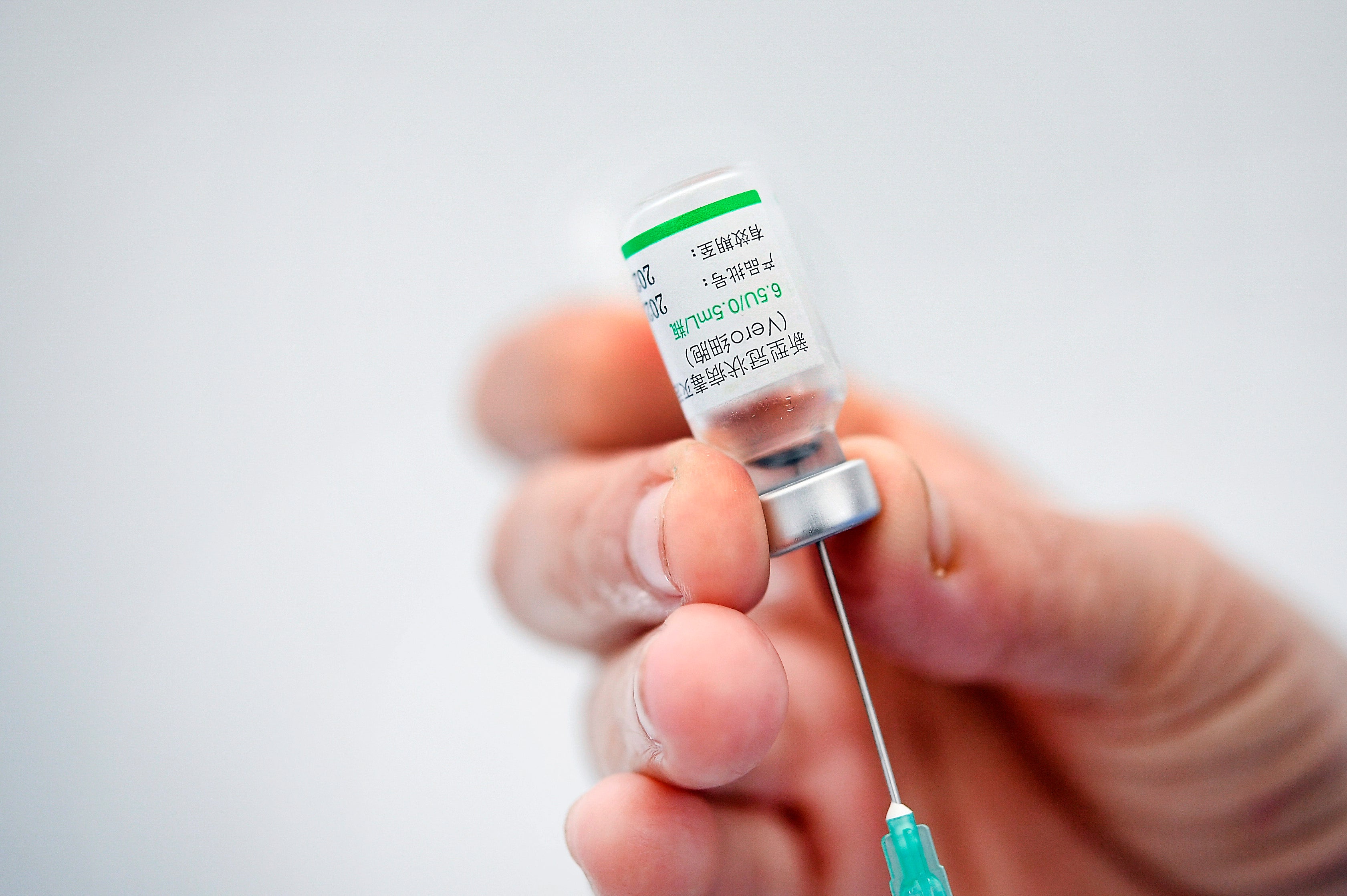WHO approves China’s Sinovac vaccine despite ‘trial data gaps’
The UN health agency says there were few older adults enrolled in Sinovac’s clinical trials, so it could not estimate efficacy in people over 60

Your support helps us to tell the story
From reproductive rights to climate change to Big Tech, The Independent is on the ground when the story is developing. Whether it's investigating the financials of Elon Musk's pro-Trump PAC or producing our latest documentary, 'The A Word', which shines a light on the American women fighting for reproductive rights, we know how important it is to parse out the facts from the messaging.
At such a critical moment in US history, we need reporters on the ground. Your donation allows us to keep sending journalists to speak to both sides of the story.
The Independent is trusted by Americans across the entire political spectrum. And unlike many other quality news outlets, we choose not to lock Americans out of our reporting and analysis with paywalls. We believe quality journalism should be available to everyone, paid for by those who can afford it.
Your support makes all the difference.The World Health Organisation has approved a Covid-19 vaccine made by Beijing-based pharmaceutical company Sinovac despite some gaps in the available trial data, making it the second Chinese-produced shot to get WHO endorsement.
In a statement, the UN health agency said that it recommends the vaccine for use in adults 18 years and older in a two-dose schedule with a spacing of two to four weeks.
The WHO said that efficacy results showed the vaccine prevented symptomatic disease in 51 per cent of those fully vaccinated, and prevented severe Covid-19 and hospitalisation in 100 per cent of the studied population.
The organisation, however, said that there were few older adults enrolled in clinical trials, so it could not estimate the vaccine efficacy in people over 60.
Nonetheless, the agency said it would not recommend an upper age limit for the vaccine because “data collected during subsequent use in multiple countries and supportive immunogenicity data suggest the vaccine is likely to have a protective effect in older people”.
Sinovac’s vaccine, called CoronaVac in some regions, was developed using inactivated viruses. Its easy storage requirements make it particularly suitable for low-resource settings, the UN body said.
The WHO’s separate Strategic Advisory Group of Experts on Immunisation (Sage) had said in a preliminary evaluation that the vaccine’s efficacy in multi-country phase three clinical trials ranged from 51 per cent to 84 per cent, according to Reuters.
The panel had also found that while the vaccine was effective in preventing Covid-19 in adults under 60, some quality data on the risk of serious adverse effects was lacking.
The Sage panel cited evidence gaps in safety in pregnancy, and on safety and clinical protection in older adults, those with underlying disease, and evaluation of rare adverse events.
But the WHO on Tuesday said that the Sage panel has now completed its review of the vaccine.
The authorisation will allow the Sinovac vaccine to be included in Covax, the UN backed initiative for fair and equitable access to vaccines.
Dr Mariângela Simão, WHO assistant-director general for access to health products, said: “The world desperately needs multiple Covid-19 vaccines to address the huge access inequity across the globe.”
In a statement, Sinovac chairman and chief executive Weidong Yin said that phase three clinical data and follow-up real world studies in Brazil, Turkey, Indonesia and Chile “have provided a solid scientific foundation for CoronaVac to be approved by more than 40 countries, as well as the WHO”.
Sinovac said it has produced more than 600 million doses so far, and more than 430 million of these have been administered worldwide.
In one study, a Brazilian city saw a 95 per cent drop in Covid-19 deaths after it vaccinated almost all adults with the CoronaVac shot. The number of symptomatic cases and hospitalisations also saw a drop, researchers said.
All adults in Serrana, with a population of 45,000, were offered the vaccine this year as part of the “Project S” experiment by the Butantan Institute, which did the study with Sinovac. Scientists found that the spread of the virus was contained after 75 per cent of the population was inoculated.
Join our commenting forum
Join thought-provoking conversations, follow other Independent readers and see their replies
Comments